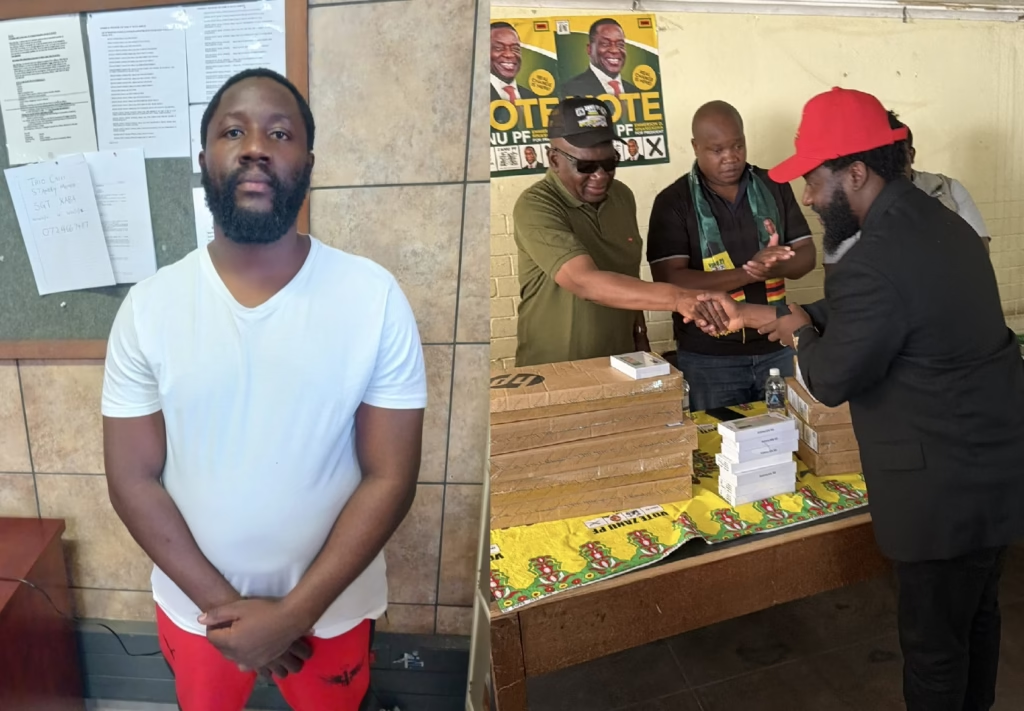HARARE, Zimbabwe – In a move sparking fresh controversy, Joachim Chivayo, recently arrested in South Africa on charges of unlawful gold possession valued at R15 million, has reportedly been co-opted into the ZANU PF Harare Province Main Wing.
This development intensifies criticism that Zimbabwe’s ruling party continues to shield and align itself with individuals implicated in serious criminal activities, particularly those involving the nation’s precious resources.
Joachim Chivayo, the younger brother of the controversial businessman Wicknell Chivayo, was apprehended in Brakpan, South Africa, alongside 20-year-old South African citizen Ayanda Brian Gungwa. The Directorate for Priority Crime Investigation, known as the Hawks, confirmed the arrests, stating the duo was found in possession of six bars of unwrought gold.
“The Gauteng Hawks’ serious organised crime investigation team, in collaboration with their head office counterparts, achieved a significant breakthrough in their fight against illegal precious metal trading by arresting the two suspects involved in the unlawful possession of gold,” stated Captain Lloyd Ramovha, Gauteng Hawks spokesperson. He added that the arrests took place as Chivayo and Gungwa were attempting to find a buyer for the minerals.
The seized gold is valued at approximately R15 million, highlighting the gravity of the alleged crime. Law enforcement agents also confiscated a Mercedes Benz SUV during the arrest. Both suspects face charges of illegal possession of gold and violating the Precious Metals Act and have been remanded in custody following their initial court appearance. The Hawks have indicated that further investigations are underway to trace the gold’s origin and identify any additional individuals involved in the illegal trade.
The alleged co-option of Joachim Chivayo into a key provincial structure of ZANU PF, while he is facing serious charges related to gold smuggling, sends a troubling message about the party’s commitment to good governance and combating corruption.
Critics argue that such appointments indicate a continued willingness by the ruling party to overlook or even protect individuals implicated in illicit activities, especially those involving the country’s valuable mineral resources.
Zimbabwe has long grappled with significant issues of gold smuggling, which deprives the nation of vital foreign currency and fuels illicit financial flows. The “Gold Mafia” exposé by Al Jazeera earlier this year brought to light the sophisticated networks allegedly involved in these activities, implicating high-ranking officials and politically connected individuals.
This latest development surrounding Joachim Chivayo further fuels public perception that ZANU PF’s internal processes may be used to provide political cover or rehabilitation for those facing criminal accusations, rather than upholding principles of accountability and transparency.
The move is likely to intensify calls for greater scrutiny of the party’s membership and leadership selection criteria, particularly as Zimbabwe approaches crucial elections. Observers question whether such actions will undermine efforts to combat corruption and restore confidence in state institutions.
